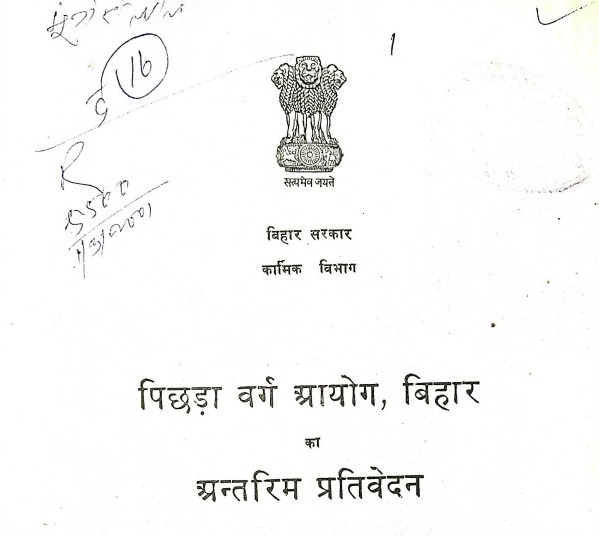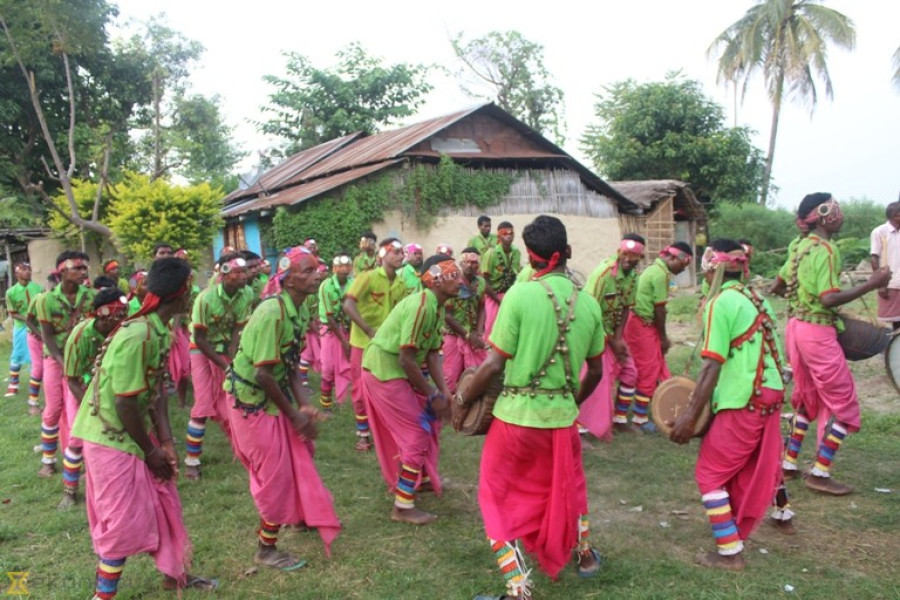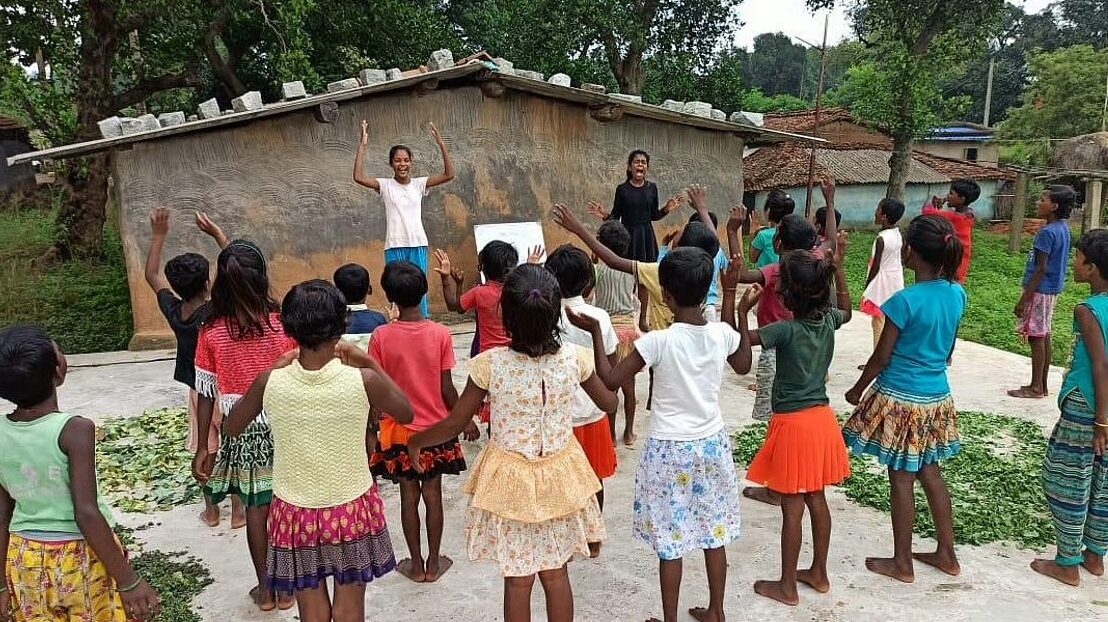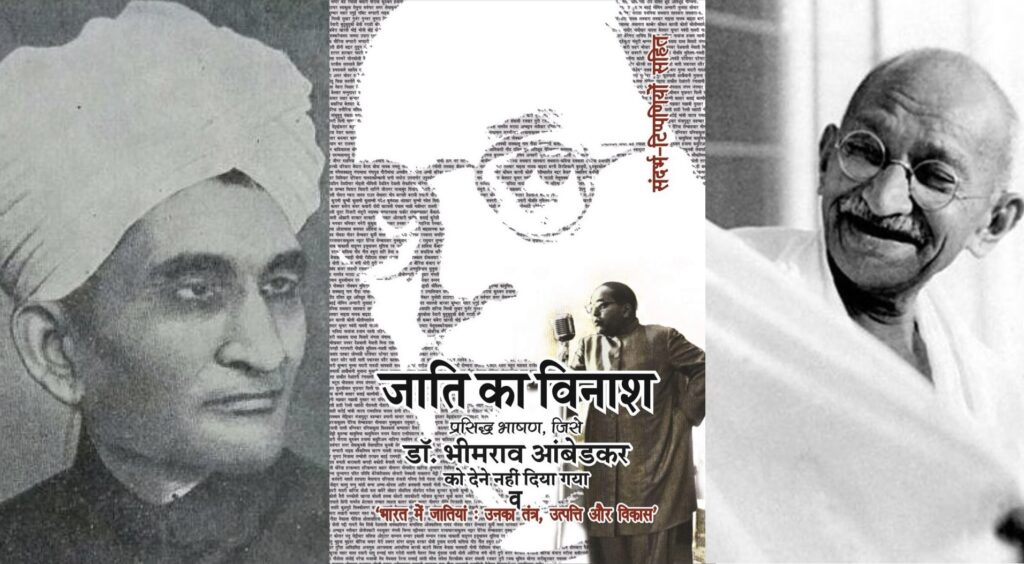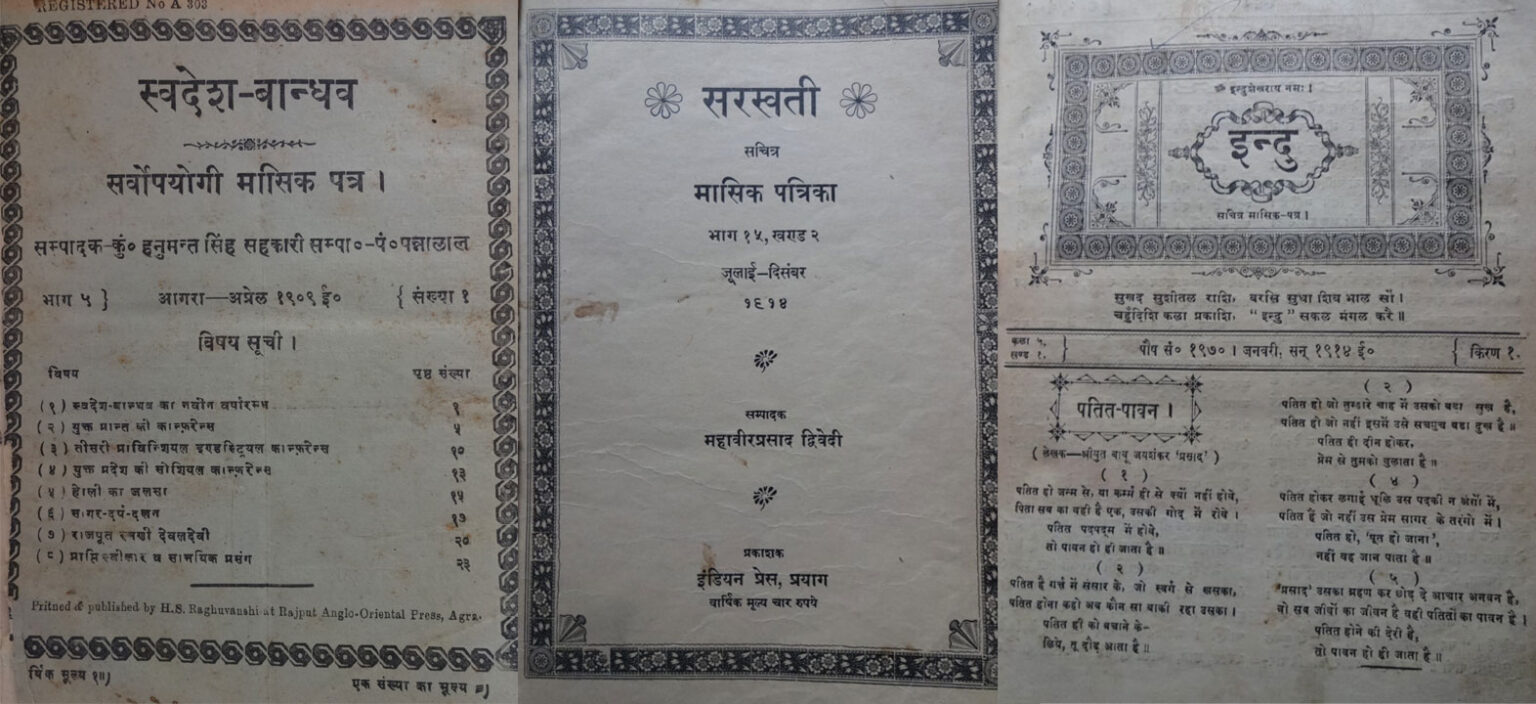The setting up of the Backward Classes Commission headed by Mungeri Lal in Bihar during the chief ministership of Bhola Paswan Shastri was a milestone in the history of social justice. The commission was tasked with identifying the backward classes and recommending measures to ensure their representation in the government and the administration. Many claims and counter-claims have been made about how and why the commission came into being. The panel, in its interim report, noted that many commissions and committees were appointed previously for suggesting measures for the welfare of SCs, STs and Backward Classes. However, no information is available on them. Prior to the constitution of this commission on 23 December 1971 the then chief minister Karpoori Thakur, on 1 June 1971, had appointed a 20-member commission that was later disbanded. Thus, Mungeri Lal was the first commission in Bihar that took into consideration the welfare of the backward classes and fulfilled its responsibilities. The recommendations of the commission were implemented with some alterations by the then chief minister Karpoori Thakur in 1978.
Here are some pages from the the commission’s report that would let light in and help dispel the haze surrounding the commission:
Letter to chief minister Kedar Pandey
Demi-official letter No. 89
Shri Mungeri Lal, Chairman,
Backward Classes Commission,
Patna-13
Date: 26 February 1973
Dear Chief Minister,
1. The state government, on 23 December 1971, appointed a Backward Classes Commission and mandated it to inquire into the problems faced by Scheduled Castes, Scheduled Tribes, Other Backward Classes and women and submit a report of the findings. The commission was to submit its report by 31 December 1972 but it was unable to do so. Despite all efforts, till September 1972, the commission could not be provided with suitable office space. The commission prepared a detailed questionnaire and sent it to the Government Press for printing in June 1972. However, the printed copies arrived only in August 1972. In September 1972, the commission tried to send a questionnaire to the government departments, but some departments remained inaccessible owing to strike and gherao of the secretariat. When the questionnaire did reach them, most departments did not care to reply. Due to all these reasons, the commission could not make satisfactory progress in its task. Here, it should be mentioned that most of the commissions and committees appointed by the government in the past to study the problems of the SCs, STs or OBCs took more than a year to submit their reports in spite of the fact that their mandate was limited to a particular community. Given the ground this commission was expected to cover during the course of its work, it would be futile to hope that it would be able to complete its work within the stipulated period. That was why the commission sought an extension of its tenure and the government extended it up to 31 December 1973.
2. To date, the commission has toured seven districts and has also scrutinized the working of some offices in the secretariat. The commission mainly tried to find out the extent to which the appointing authorities have followed the instructions issued by the state government pertaining to reservations in posts and services for the members of the Scheduled Castes (SCs) and the Scheduled Tribes (STs). It pains the commission to state that this exercise has so far revealed that almost all appointing authorities, whether deliberately or otherwise, violated the government’s instructions. Consequently, despite these instructions regarding reservations being in force for more than 24 years, the representation of the SCs and STs in these departments and offices of the state government is grossly unsatisfactory. The situation in the departments and the offices yet to be scrutinized may be no different. We have decided to present an interim report so that the government can take appropriate countermeasures to ameliorate the situation without having to wait for the commission’s final report by when the SCs and STs would have sustained massive losses.
3. We are very happy to present an interim report with our recommendations based on the investigations and studies we have carried out so far. There is no doubt that if the government chooses to implement these recommendations, it would lead to an increase in the representation of the SCs and STs, not only in government departments and offices but also in private jobs and in services under government undertakings.
4. We cannot but appreciate the fact that non-governmental organizations and individuals working for the welfare of the backward castes, despite the personal inconvenience involved, readily agreed to depose before the Commission and assist in its work. We express our gratitude to the district and block administrations for their goodwill, help and cooperation. We are thankful to the functionaries of private and government undertakings for their assistance.
5. We hope that the government will publish this report as soon as possible and also table it in the upcoming Budget session of the legislative assembly.
Yours
Mungeri Lal
To,
Shri Kedar Pandey
Chief Minister, Bihar,
Patna
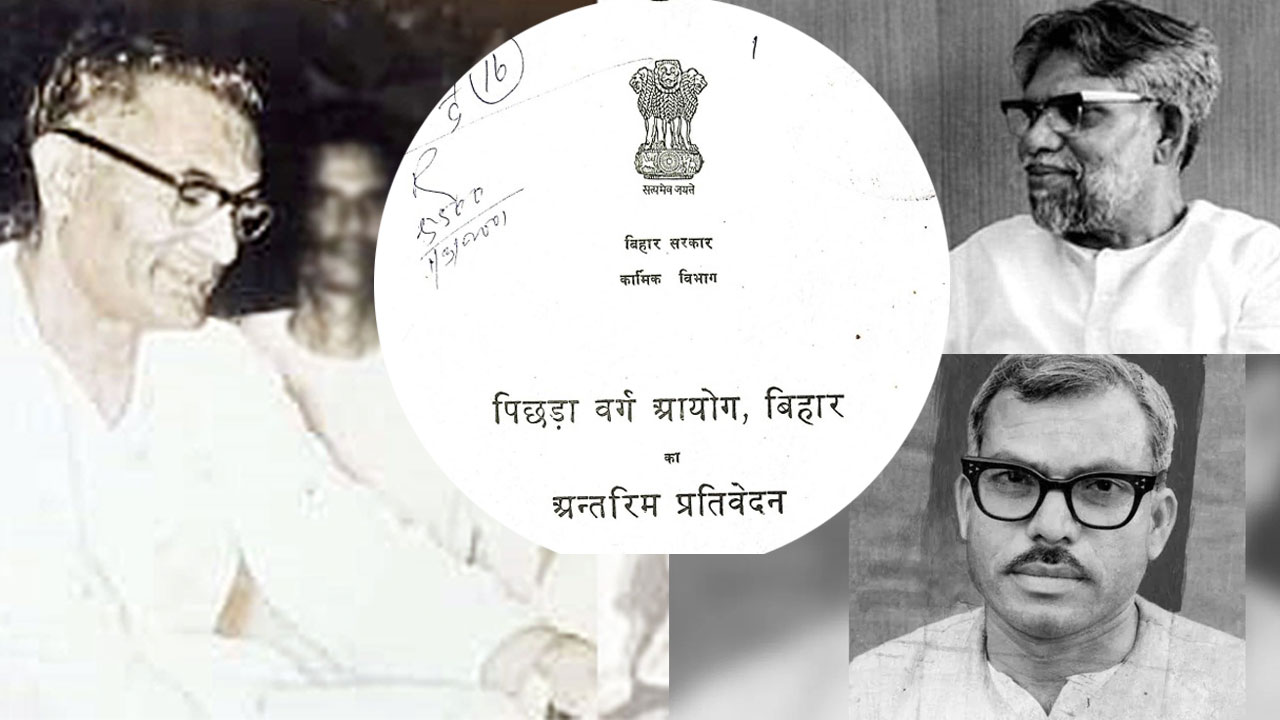
Introduction to the first interim report
It is well known that the Indian Constitution has provision for reservation for Scheduled Castes and Scheduled Tribes in services under the State. For implementation of this provision, the Appointments Department of the state government issued an order through its Resolution No. III-L-3-6/50-A-7285 dated 31 July 1951, providing 13 per cent reservation to SCs and 11 per cent to STs. For appointments made at divisional and district levels, different percentages of jobs were fixed for these communities using a specified formula based on their population. Subsequently, based on Census 1951 data, the Appointments Department, through its Resolution No. III-3-L-6/50-A–9908 dated 13 November 1953, issued another order, providing 12.5 per cent reservation to Scheduled Castes and 10 per cent to Scheduled Castes for appointments made at the state level. Different percentages were fixed for appointments done at the divisional and district levels. The appointing authorities were requested to scrupulously follow the orders related to reservations. They were also warned that if any instance of disregarding the orders comes to light, necessary action will be taken against the official concerned.
On 25 May 1970, Shri Vishwanath Modi put up a starred question in the Bihar Assembly seeking to know whether the government would compensate for the appointment of upper-caste persons to posts reserved for Scheduled Castes and Scheduled Tribes by appointing only SCs and STs against vacancies arising in the future? In his reply, the then chief minister Shri Daroga Prasad Rai admitted that the provisions made for Scheduled Castes and Scheduled Tribes in the Constitution have not been implemented fully and correctly. He also said that he respected the sentiments of the honourable members, adding that the constant refrain of the appointing authorities that suitable candidates from these castes were not available was not tenable. He assured the members of the Assembly that proper inquiries would be made in the matter and the shortfall would be made up for as far as possible through Constitutional means. When asked how the government proposes to fulfil this assurance, the chief minister announced in the Assembly that the government would appoint a commission to find out why Scheduled Castes and the Scheduled Tribes were not getting the facilities provided to them by the Constitution. It was in fulfillment of this assurance that the government set up the Backward Classes Commission. The resolution issued by the Appointments Department in this regard is reproduced below:
Resolution of state government appointing the commission
Government of Bihar
Department of Appointments
Memo No. 3/S-2-119/70-A-22297
Patna-15, Date: 2 Paush 1893 (Saka) / 23 December 1971
Subject: The constitution of the Backward Classes Commission
The state government, through its Resolution No. 9355 dated 1 June 1971, had appointed a Backward Classes Commission and nominated 20 persons as its members.
2. The state government, on reconsideration, came to the conclusion that the objectives for which the commission has been constituted would not be served by a 20-member body. Hence, the notification regarding nominations to the Commission, issued through Resolution No 11441 dated 25 June 1971 of the Appointments Department, was cancelled and it was decided to constitute a smaller body.
3. The state government has reconstituted the Backward Classes Commission to inquire into the reasons behind the flaws in the implementation of the government’s orders for protecting the interests and wellbeing of the Scheduled Castes, Scheduled Tribes and Other Backward Classes and to consider what facilities may be provided for all-round progress of these castes. The following gentlemen will be members of this Commission:
(1) Shri Mungeri Lal (Chairman)
Members
(2) Shri Abdul Qayyum Ansari
(3) Shri Dhanik Lal Mandal
(4) Shri Dev Sharan Singh
(5) Shri Karam Chand Bhagat
(6) Shri Vaidyanath Das
(7) Shri Yamuna Prasad Singh
4. The headquarters of the commission will be in Patna. The terms of reference of the commission are listed in the annexure.
5. The commission’s tenure will be up to 31 December 1972. This resolution may be published in the Bihar Gazette and a copy each may be made available to government departments/divisional commissioners/district magistrates/Bihar Legislative Assembly/Bihar Legislative Council and Accountant General, Bihar.
By order of the Governor of Bihar
Shivnath Saigal, Secretary
Terms of reference
- The commission shall examine the extent to which different departments of the state government have adhered to the instructions issued by the government for providing reservation to Scheduled Castes and Scheduled Tribes in services and will investigate the reasons for the departments not implementing the different orders issued in this regard.
- The commission shall examine the extent to which the appointing authorities adhered to the instruction of the state government that while making appointments they should give adequate consideration to the claims of the candidates from Other Backward Classes.
- The commission shall examine whether the Scheduled Castes and the Scheduled Tribes have adequate representation in the state’s public undertakings and what their rules say.
- The commission shall broadly review the implementation of the different developmental programmes launched for the welfare of the Scheduled Castes, Scheduled Tribes and Other Backward Classes.
- The commission shall examine whether the steps taken for the advancement of the backward classes to date are adequate.
- The commission shall examine other issues the state government will bring to its attention in the future.
- The commission shall submit a report on its findings to the state government and recommend:
- The steps that should be taken by the state government for the successful implementation of its various orders regarding reservation to Scheduled Castes and Scheduled Tribes in services
- The additional provisions that should be made for reservations to the Scheduled Castes and Scheduled Tribes in services
- The steps that should be taken to ensure adequate representation to Scheduled Castes, Scheduled Tribes and Other Backward Classes in government undertakings and corporations in the state
- What more can be done for the welfare of the Scheduled Castes and Scheduled Tribes. The commission will also report whether changes are required in the objectives, priorities and manner of implementation of developmental schemes for the well-being of the Scheduled Castes and Scheduled Tribes
- The arrangements that must be made to ensure special opportunities and more facilities to Harijans, Adivasis, women and other socially backward castes in education, employment, jobs etc
- The extent to which recommendations of Kaka Kalelkar, Thakkar Bapa, Dhewar and other commissions were implemented and what more can be done in that respect
- Whether all sections of Scheduled Castes, Scheduled Tribes and Other Backward Castes have adequately benefited from the special facilities provided to them till now and if not, what can be done to improve the situation
Functioning of the commission
- The commission shall obtain information that is relevant and necessary to attain its objective and that it considers useful from different departments/heads of departments/offices and other such establishments, organizations or persons in a form and manner as it deems fit.
- The Commission may hold its meetings or the meetings of sub-committees comprising its members at such time and place as the chairperson or any other person authorized by him decides.
- The Commission shall inspect any place in the state that it considers necessary or convenient or depute any of its sub-committees to conduct such inspection.
- The Commission shall continue to function despite temporary absence of any of its members or membership vacancies
- The Commission shall regulate its own procedure
The Commission’s first meeting was held on 13 January 1972, in which retired chief secretary Shri Ram Sewak Mandal was also present. It was decided at the meeting to appoint Shri Thakur Prasad, deputy secretary, Personnel Department and Cabinet Secretariat, as member-secretary of the commission. Accordingly, the Appointments Department issued a notification No. 3-S2-119/70-Appointments-1028, dated 20 January 1972, appointing Shri Thakur Prasad as the member-secretary of the Commission. He took charge on 29 January 1972.
As is evident from the resolution cited above, the commission’s tenure was to end on 31 December 1972. The commission could not begin its work till March 1972 due to the General Elections. Even after the elections, the commission faced many problems. The first was finding a building for its office. The state government could not provide any building for the purpose. Then began an effort to rent an office space. With great difficulty, a building could be rented. This is when the commission began its work in earnest. The commission prepared a detailed questionnaire and sent it for printing to the Secretariat Printing Press in June 1972. Several requests were made to the Superintendent, Secretariat Printing Press, to expedite the work because the commission’s tenure was to expire on 31 December 1972. After many entreaties, the press began the work and the printed copies could become available only in August. In September, the work of dispatching copies of the questionnaire to departmental secretaries and heads of department began. However, that was also delayed and hampered due to strikes and gheraos. When departmental secretaries and heads of departments were invited to depose before the commission, they sought more time. To date, no department has furnished the completed questionnaire.
The commission has been touring different districts to record the depositions of the heads of offices and scrutinize the implementation of the order for providing reservation to the Scheduled Castes and Scheduled Tribes. It is also holding discussions with individuals interested in the welfare of SCs, STs, OBCs and women. It is also studying the extent to which the provisions made for these sections are being implemented. The commission has, so far, completed studies of Champaran, Ranchi, Singhbhum, Dhanbad, Munger, Bhagalpur and Shahabad districts.
Due to the above-mentioned problems, the commission, despite its best efforts, has not been able to achieve expected progress in its work. Under these circumstances, it was not possible for the commission to complete its work and present its report by 31 December 1972. But the commission’s investigations to date about the extent to which orders related to reservation were followed, has revealed that most of the departments and appointing authorities, deliberately or otherwise, violated the government’s instructions. The commission’s tenure has been extended by a year. It is of the view that if it submits its report after completing its inquiry, the irregularities in appointments will continue until then and consequently there will be no improvement in the representation of SCs and STs in government services. Hence, the commission has decided to present an interim report so that the government can take appropriate steps to ameliorate the situation.
With great grief, the commission would like to inform that one of its members, Shri Abdul Qayyum Ansari, passed away on 18 January 1973. He had also served as a member of the Backward Classes [Kaka Kalelkar] Commission constituted by the Government of India. He took great interest in the work of this commission. The commission is deeply indebted to him for his invaluable suggestions and cooperation. He had gone through the draft of the interim report and consented to it. However, he passed away before he could sign the final document.
(Translated from the original Hindi by Amrish Herdenia)
Forward Press also publishes books on Bahujan issues. Forward Press Books sheds light on the widespread problems as well as the finer aspects of Bahujan (Dalit, OBC, Adivasi, Nomadic, Pasmanda) society, culture, literature and politics. Contact us for a list of FP Books’ titles and to order. Mobile: +917827427311, Email: info@forwardmagazine.in)
